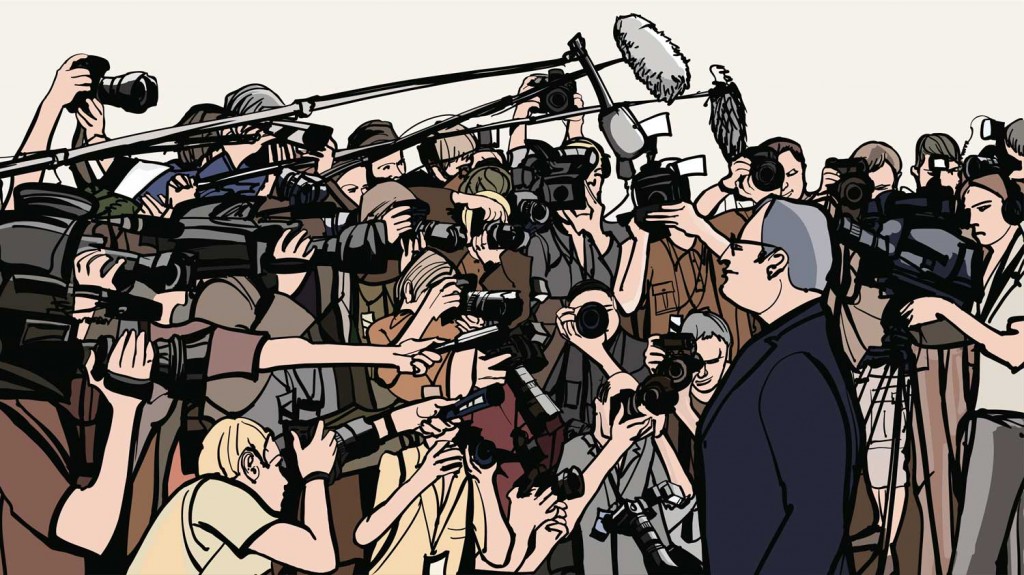Kourosh Ziabari – Medium: I chose an early career in journalism by virtue of my journalist family: my parents have been running a local weekly magazine in northern Iran for some 20 years now. Although I can’t say that I regret my choice of becoming a journalist, I should confess this industry has hit a stalemate in my country and those who remain committed to it are almost automatically following the advice embedded in one of the famous poems by Rumi, a 13th century Iranian Sunni poet and jurist who said, “I am not to give away your painful feeling; Or to quit loving you till the day I’m kneeling. Your only souvenir is a whole lot of hurting; Still, I won’t replace it with a certain healing.”
Aside from not being well-paid, journalists in Iran continue being unrecognized for their day and night efforts, are not sufficiently protected by the government and even their affiliated media organisations, and are a marginal concern for those in power unless when they speak out in criticism of injustices, irregularities and shortcomings, when they should await grim consequences.
For Iranian journalists, they are the red lines and restrictions that are the main priorities not freedoms and choices. Since there’s no independent regulatory body to oversee the performance of the media, stark double standards in how media are treated in cases of dissatisfaction and complaint sometimes make it to the front-page of The Guardian and main newscast of BBC World and CNN, because even the international community is not able to understand how the media law in Iran works.
Sometimes, the omission of a prefix like “Dr” in giving reference to a president might generate a huge debate for months and sometimes, the artist behind the offensive cartoon of a president printed on the frontage of a different newspaper might be treated like a hero.
Journalism in Iran is a big misunderstanding that will not be clarified, because there’s no such a thing as independent journalism. There is no trace of serious journalism aimed at challenging the authority and posing serious and fundamental questions that lead to the resolving of major economic, social and political problems. At the same time, magazines and periodicals have nothing new to say but to explore the highly-technical, fringe issues that are of interest to small communities: psychologists, online gamers, car geeks and sports enthusiasts.
TV channels are totally monopolized by the government and their content is becoming growingly and repetitively one-sided and more often than not, so boring that people opt out to listen to music on their headphones or switch to cooking shows when the most important news programme at 2:00 PM is being aired from the Channel 1.
National media icons are not too many to be counted like what you see in the United States or United Kingdom. The country is suffering from a serious lack of “something” like Charlie Rose or Jeremy Paxman. Journalists learn to easily bargain their honour and trade honesty for money and this is undermining the integrity of the industry on a regular basis.
Foreign correspondents of the state TV in other countries are doing a poor job and even don’t correct themselves when they’re getting something wrong for an extended period of time. They suffer severely from a lack of media education and in general, such a thing as media education is missing in the schools and universities across the country.
Only a handful of universities offer programmes in journalism and media, and almost all of those who want to become journalists by education after practicing journalism travel to the United States, United Kingdom, Canada or some other European, Western countries to realise their dream of learning something their educational system is unable to offer to them: first-hand, advanced training and education in journalism and media.
For me, journalism was an involuntary journey that has now become sweet and inspiring. I’m studying a postgraduate degree in international multimedia journalism in a major UK university. Every new forum or event in which I can put into practice part of my journalistic knowledge is a blessing. Making every single contact with a high-profile or qualified journalist is a blessing. Reading every piece of good journalism is a blessing. Producing high-quality journalism is difficult but possible, and it becomes motivating to figure out that what I write or broadcast can inspire at least a couple of people.
However, journalism in Iran is not heading in the direction that journalism in the world is. Journalism in my country is becoming PR for governmental organisations, paying lip-service to those in power and following routines that are not rousing and electrifying in the modern world.
With journalism being seen as a threat and journalists being constantly and repeatedly seen as criminals, and with dishonest TV reporters being featured as the icons of national media in talk shows, the status quo will remain the same: Iran will not make progress and media in this country will remain primitive and boring.
There is, albeit, a solution to all of these complexities. The solution is teaching media literacy at schools and journalism at colleges and universities, those in power becoming more receptive of criticism and understanding of the sensitivity of journalism as an industry and less intervention on behalf of the government in the workings of media. And the solution is to stop treating committed, patriotic and entrepreneurial journalists as criminals and stop featuring pseudo-correspondents or anchors as the examples of true journalism. People in the 21st century are more prudent and of course more conservative in making their choices.
This interview was originally published on Medium

